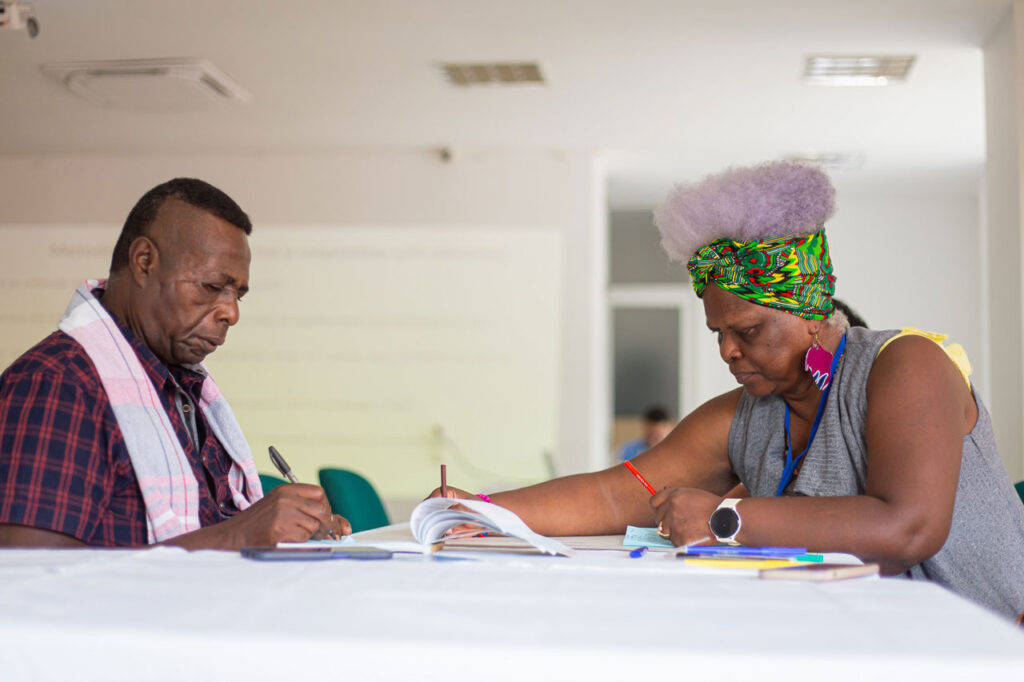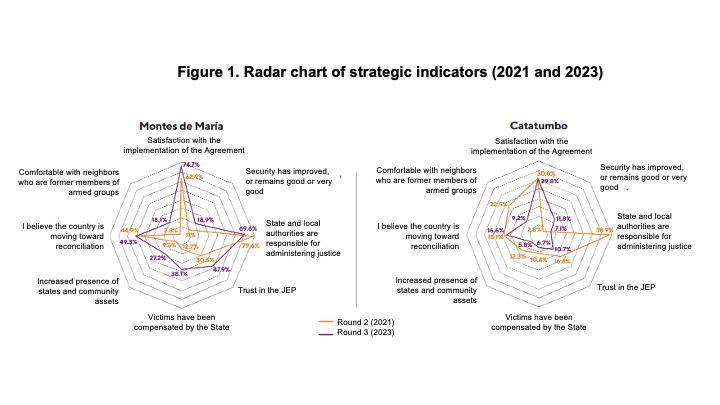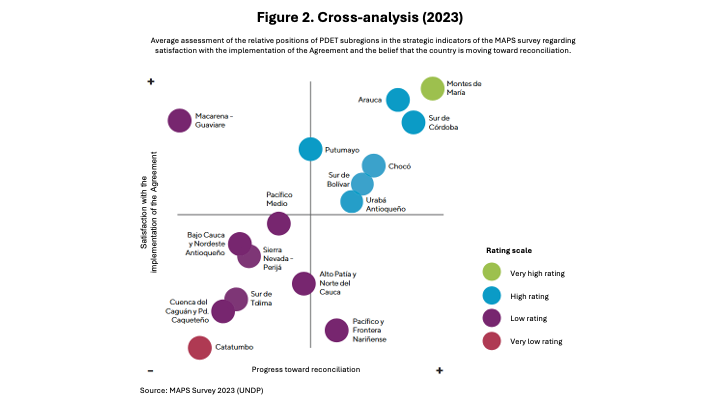The vital role of victims and their organisations in peacebuilding
Victims are at the centre, not only of the 2016 Peace Agreement, but also of the Fund’s actions. Strengthening their capacities and
reducing the barriers they and their organisations face in accessing processes that both acknowledge their experiences of the conflict
and enable their participation in territorial transformation, are fundamental priorities in the Fund’s investments.
PDET municipalities and victims have a voice in Congress
Initiative supported by:

- Differentiated criminal treatment for small-scale growers – under review in the First Committee of the House of Representatives. First debate.
- Comprehensive reform of Law 1448 of 2011 (Victims and Land Restitution Law) – approved. Law 2421 of 2024.
- Allocation of seized assets for the PDET – approved in the Sixth Committee of the House of Representatives. Pending plenary debate.
- Institutional strengthening of PDET municipalities – approved in the House of Representatives. Pending review in the Senate.
- Extension of the Development Programmes with a Territorial Focus (PDET) – approved in the House of Representatives. Pending review in the Senate.
- Restoration of degraded soils – approved in the Fifth Committee of the House of Representatives. Pending plenary debate.
- Tourism fishing – approved in the House of Representatives. Pending review in the Senate.
- Recognition of rights for the Mojana region – in second debate in the Fifth Committee of the House of Representatives.
Lessons Learned
- To support the Peace Councils in some municipalities, the victim participation roundtables were not active. Some of them were reactivated in Antioquia (Mutatá, Apartadó, Turbo, San Carlos, San Luis, San Francisco, Granada, Cocorná, Dabeiba, and Ituango). However, it is essential to consider virtual, digital, and asynchronous activities due to the high dispersion of victims in rural areas. Greater participation is encouraged when victims are grouped in networks or platforms that include grassroots organizations, and it is these networks that channel demands and participation and bring them to the victim participation roundtable.
- The spaces for participation won by Indigenous women must be appropriated and standardized throughout the community, as well as by the governance bodies of Indigenous reservations like the Nukak, where the majority are men, so that the spaces won by women are not lost when the intervention ends.
[1] Interview with Luis Ramiro Ricardo Buelva, representative of the peace seat for the Montes de María constituency, highlighting the importance of victims’ participation in bills aimed at their recognition and efforts to reduce the gaps resulting from the impact of the conflict.
Interview with Luis Ramiro Ricardo Buelva, representative of the Peace Council for the Montes de María district, who highlights the importance of victims’ participation in bills promoting their recognition and working to reduce the gaps resulting from the impact of the conflict.
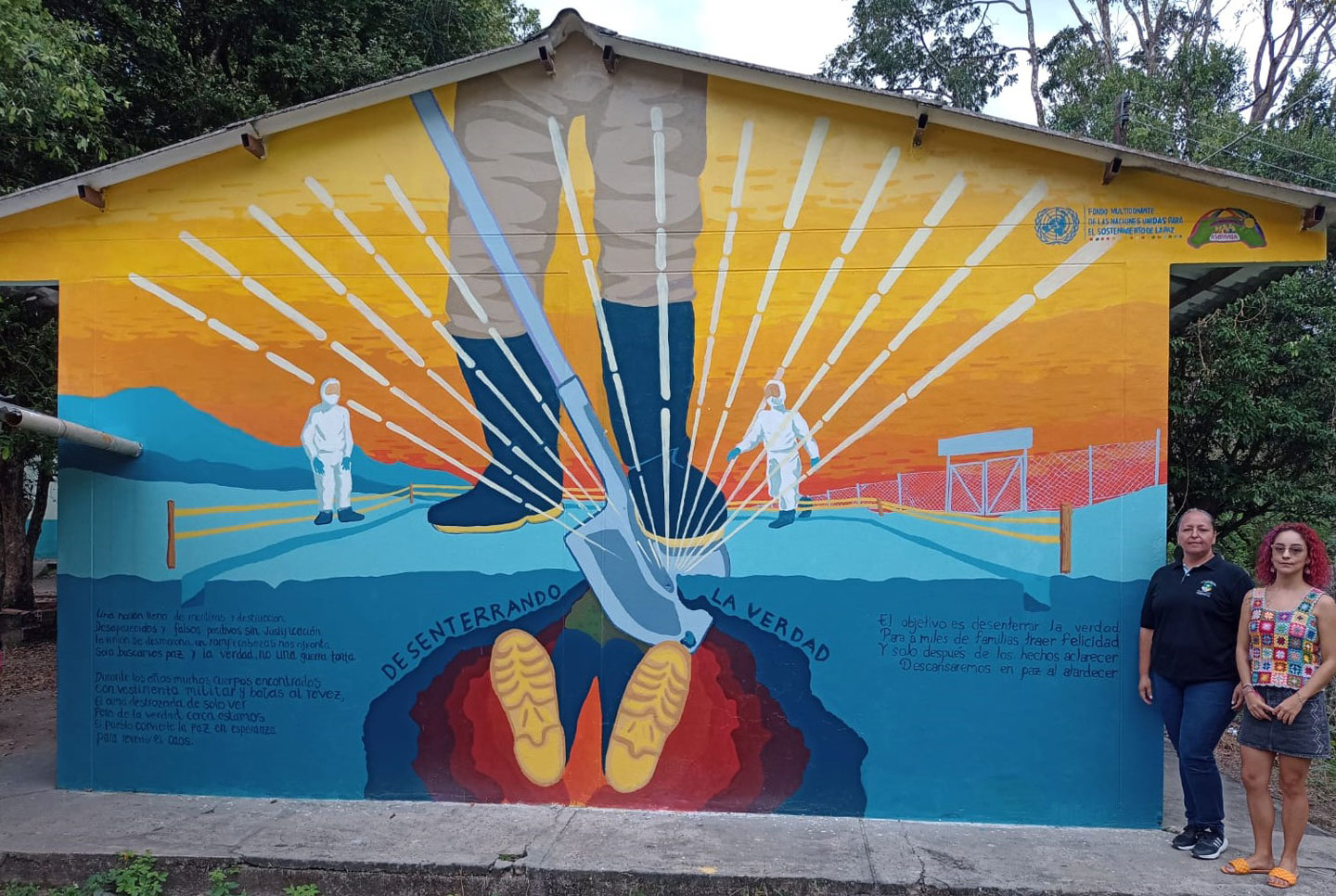
The voices of communities on progress and challenges with implementation
In 2024, the third round of measurement of the Monitoring Attitudes, Perceptions, and Support for Peace in Colombia Survey (MAPS) was completed. On this occasion, 11,820 residents of PDET municipalities were surveyed, achieving a 60% re-contact rate with individuals who had participated in previous rounds.
The Fund has supported all three rounds of the survey—in 2019, 2021, and 2024—which have provided valuable data on public
perceptions regarding the progress and challenges of implementing the Peace Agreement in 72 PDET municipalities across the 16
PATR subregions, as well as in an urban survey conducted in five major cities: Bogotá, Medellín, Cali, Barranquilla, and Bucaramanga,
gathering the views of over 1,172 people.
Below are some of the most representative results from the survey, along with comparisons to previous years.
This survey has also enabled the Fund to use the results as a means of measuring the perception indicators included in its results framework, as it successfully incorporated questions related to the perceptions of communities in PDET municipalities that have benefited from the Fund’s investments.
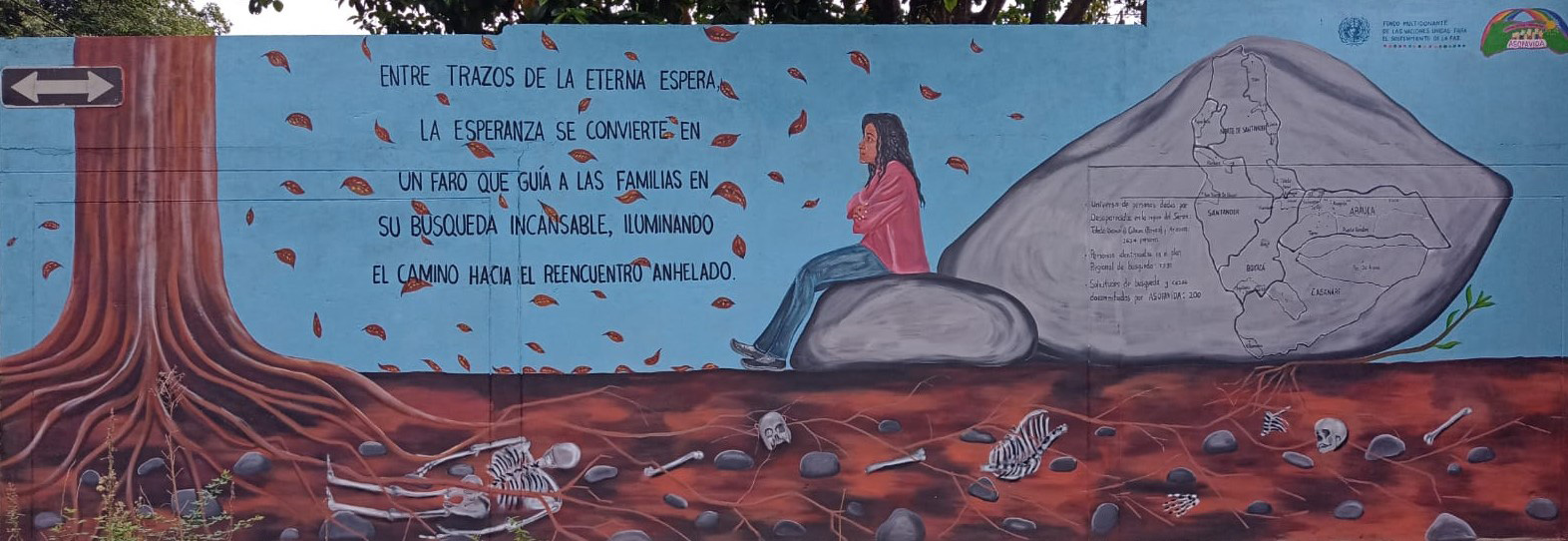
They took them alive; we want them back alive4
On the other hand, the role of victims’ organisations made up of relatives of disappeared people has been vital in advancing the Regional Search Plans (PRBs, for their Spanish acronym), a tool that the Unit for the Search of Persons Reported as Disappeared (UBPD, for its Spanish acronym) has been developing in the territories alongside searching relatives and victims’ organisations. These plans make it possible to structure the search based on a specific area or region, a population group, a specific time period, possible places of disposal, and other variables specific to each search plan.2
For this reason, in 2024 the Fund prioritised investments to promote coordinated efforts between searching organisations and the
UBPD, through a call for proposals in which 28 civil society organisations (CSOs) worked across 13 departments: Antioquia, Arauca,
Bolívar, Boyacá, Casanare, Cesar, Córdoba, Norte de Santander, Meta, Santander, Sucre, Tolima, and Valle del Cauca.
- The direct participation of 6,305 people involved in searches in teaching spaces through training schools and artistic, cultural and sporting processes, which helped strengthen recognition of the UBPD’s mandate in the search for missing people.
- The participation of 1,435 grade 10 and 11 students from urban and rural education institutions in Arauca (Arauquita, Curabá, Fortul, Saravena and Tame), helping to consolidate collective memory, generational exchange and the maintenance of search efforts.
-
Participatory development with more than5,000 searchers and the delivery to the UBPD of 14 products and documents containing analyses of search processes at the territorial level,
 methodologies for searching for LGBTIQ+ individuals, as well as assessments of psychosocial impacts and harm with a gender approach, and diagnostics on graves and cemeteries.
methodologies for searching for LGBTIQ+ individuals, as well as assessments of psychosocial impacts and harm with a gender approach, and diagnostics on graves and cemeteries.
- The production of 46 radio programmes as a dissemination strategy to promote trust and safety within communities to come forward with their cases, and 18 dignification events were held in symbolic spaces, allowing searching families to come together and raise awareness about the crime of enforced disappearance.
Finally, regarding their contribution to the National Registry of Graves, Illegal Cemeteries and Burial Sites, these organisations delivered 67 new locations of forensic interest to the UBPD in Arauca, Eastern Antioquia and Urabá Antioqueño, Casanare, Boyacá, Norte de Santander, and Valle del Cauca. This was achieved through the development of 20 maps and georeferencing efforts for the identification of burial sites, carried out through training sessions and participatory research meetings held in Antioquia, Magdalena Medio, Meta, Norte de Santander, and Sucre.
At the close of this call for proposals, the organisations put forward a series of recommendations to the institutions involved in the National Search System and to international cooperation actors, which contribute significantly to improving search processes, enhancing coordination in the territories, and validating the capacities and progress made by these organisations on the ground. This, in turn, increases the chances of upholding the rights of victims to know the truth, to find their relatives, and to bring closure to the suffering that this atrocious phenomenon has caused for more than 600,000 family members of persons reported missing in Colombia.
- Recommendations from victims’ organisations to improve PRB and SNB processes in the territories and on a national level.
- Mujeres Buscadoras documentaries
- MAPS report 2024




